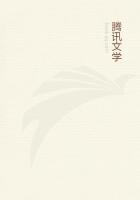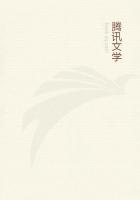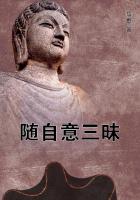The initial proceedings to the taking of testimony, while to a degree foreshadowing a partisan division in the trial, also demonstrated the presence of a Republican minority which could not at all times, be depended upon to register the decrees of the more radical portion of the body. The first development of this fact came in the defeat of a proposition to amend the rules in the interest of the prosecution, and again on the examination of Mr. Burleigh, a delegate from Dakota Territory in the House of Representatives and a witness brought by the prosecution on March 31st. Mr. Butler, examining the witness, asked the question:
Had you on the evening before seen General Thomas? * * * Had you a communication with him?
Answer. Yes sir.
Mr. Stanbery objected, and the Chief Justice ruled that the testimony was competent and would be heard "unless the Senate think otherwise."To this ruling Mr. Drake objected and appealed from the decision of the Chair to the Senate. It appeared to be not to the ruling per se, that Mr. Drake objected, but to the right of the Chair to rule at all upon the admissibility of testimony. Mr. Drake representing the extremists of the dominant side of the Chamber.
There seemed to be apprehension of the effect upon the Senate of the absolute judicial fairness of the rulings of the Chief Justice, and the great weight they would naturally have, coming from so just and eminent a jurist. After discussion, Mr. Wilson moved that the Senate retire for consultation.
The vote on this motion was a tie, being twenty-five for and twenty-five against retiring, whereupon the Chief Justice announced the fact of a tie and voted "yea;" and the Senate retired to its consultation room, where, after discussion and repeated suggestions of amendment to the rules, the following resolution was offered by Mr. Henderson:
Resolved, That rule 7 be amended by substituting therefor the following:
The presiding officer of the Senate shall direct all necessary preparations in the Senate Chamber, and the presiding officer in the trial shall direct all the forms of proceeding while the Senate are sitting for the purpose of trying an impeachment, and all forms during the trial not otherwise provided for. And the presiding officer on the trial may rule all questions of of evidence and incidental questions, which ruling shall stand as the judgment of the Senate, unless some member of the Senate shall ask that a formal vote be taken thereon, in which case it shall be submitted to the Senate for decision; or he may, at his option, in the first instance, submit any such question to a vote of the members of the Senate.
Mr. Morrill, of Maine, moved to amend the proposed rule by striking out the words "which ruling shall stand as the judgment of the Senate," which was rejected without a division.
Mr. Sumner then moved to substitute the following:
That the chief justice of the United States, presiding in the Senate on the trial of the President of the United States, is not a member of the Senate, and has no authority under the Constitution to vote on any question during the trial, and he can pronounce decision only as the organ of the Senate, with its assent.
It is not insisted here that there was any sinister purpose in this proposition, yet the possibilities, in case of its adoption, were very grave. Like the wasp, the sting was in the tail--"he (the chief justice;) can pronounce decision only as the organ of the Senate, WITH ITS ASSENT! Had that rule been adopted, suppose the Senate, with, its vote of forty-two Republicans and twelve Democrats, upon failure of conviction by a two-thirds vote had refused or refrained on a party vote from giving "its assent" to a judgment of acquittal?
The vote upon this proposed amendment was as follows:
For its adoption--Messrs. Cameron, Cattell, Chandler, Conkling, Conness, Corbett, Cragin, Drake, Howard, Morgan, Morrill of Maine, Morton, Nye, Pomeroy, Ramsay, Stewart, Sumner, Thayer, Tipton, Trumbull, Williams, Wilson--22--all Republicans.
Against its adoption--Messrs. Bayard, Buckalew, Cole, Davis, Dixon, Doolittle, Edmunds, Ferry, Fessenden, Fowler, Frelinghuysen, Henderson, Hendricks, Howe, Johnson, McCreery, Morrill of Vermont, Norton, Patterson of New Hampshire, Patterson of Tennessee, Ross, Sherman, Sprague, Van Winkle, Vickers, Willey--26--15 Republicans and 11 Democrats.
So the resolution was rejected--every aye vote a Republican, and all but one, Mr. Trumbull, afterwards voting to impeach the President at tHe close of the trial--eleven Democrats and fifteen Republicans voting nay.
Mr. Drake then offered the following:
It is the judgment of the Senate that under the Constitution the Chief Justice presiding over the Senate in the pending trial has no privilege of ruling questions of law arising thereon, but that all such questions shall be submitted to a decision by the Senate alone.
It would be difficult to formulate a proposition better calculated to taint the proceedings with a partisan bias than this one by Mr. Drake. The impeachment movement was in a very large sense, if not entirely, a partisan enterprise. It had its origin in partisan differences, and was based mainly on differences as to public policies at issue between the two great parties of the country--and while it was expected that every political. friend of the President would vote against the impeachment, it was DEMANDED, and made a test of party fealty, that every Republican Senator should vote for his conviction.
Therefore, and perhaps it was not illogical from these premises, party leaders of Mr. Drake's inclination should not relish the influence the legal, unbiased and non-partisan rulings of the Chief Justice might have upon his more conservatively inclined fellow partisans of the body.
Mr. Drake called for the yeas and nays, which were ordered, and the vote was yeas 20, nays 30. The personality of this vote was very much the same as on the previous proposition.













